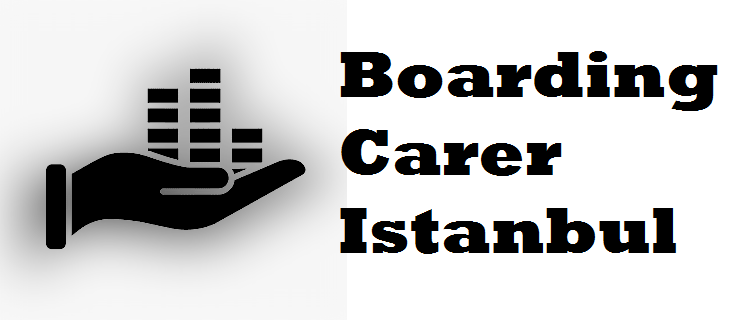The duties of a home caregiver can vary depending on the specific needs and condition of the individual receiving care. Home caregivers provide support and assistance to individuals who may have physical or mental health challenges, elderly individuals, or those with disabilities. Some common duties of a home caregiver include:
- Personal Care: Assisting with personal hygiene tasks, such as bathing, grooming, dressing, and toileting. The caregiver may also help with transferring or mobility support for individuals with limited mobility.
- Medication Management: Administering medications as prescribed and ensuring the individual follows their medication schedule properly.
- Meal Preparation: Planning and preparing nutritious meals according to the individual’s dietary requirements and preferences.
- Assistance with Eating: Helping with feeding, if necessary, especially for individuals who have difficulty eating independently.
- Housekeeping: Light housekeeping tasks, such as cleaning, laundry, and maintaining a safe and tidy living environment.
- Monitoring Health: Observing and reporting any changes in the individual’s condition or health status to family members or healthcare professionals.
- Companionship: Providing emotional support and engaging in conversation and activities to reduce feelings of loneliness and isolation.
- Transportation: Assisting with or arranging transportation for medical appointments, grocery shopping, or other necessary errands.
- Physical Therapy Exercises: Assisting with prescribed physical therapy exercises or encouraging the individual to perform exercises to maintain mobility and strength.
- Respite Care: Providing temporary relief and support for family caregivers who need a break or time off from their caregiving responsibilities.
- Memory Care: For individuals with cognitive impairments, such as Alzheimer’s disease or dementia, caregivers may implement memory care techniques and engage in activities that promote cognitive stimulation.
- Medical Support: Under the direction of healthcare professionals, caregivers may provide basic medical support, such as wound care, monitoring vital signs, or managing medical equipment.
- Emotional Support: Offering empathy, compassion, and understanding to address emotional and psychological needs.

It’s essential for home caregivers to communicate effectively with the individual they are caring for, their family members, and any other healthcare professionals involved in the individual’s care. Additionally, caregivers must prioritize the safety, dignity, and well-being of the person they are caring for while promoting their independence and quality of life to the best extent possible. Looking for an Elderly Babysitter Istanbul >>
Babysitter in Istanbul
Residential caregiver consultancy in Istanbul. What Do Boarding Babysitters Do? Boarding babysitters, also known as live-in babysitters or full-time babysitters, provide childcare services while living in the family’s home on a regular and ongoing basis. Unlike occasional or part-time babysitters, boarding babysitters typically have a more long-term arrangement with the family they work for. Their duties and responsibilities are similar to those of regular babysitters but may involve additional tasks due to the live-in nature of the job. Here are some of the typical duties of boarding babysitters:
- Childcare: The primary responsibility of a boarding babysitter is to care for the children in the family. This includes supervising them, ensuring their safety, engaging them in age-appropriate activities, and providing for their daily needs.
- Meal Preparation: Boarding babysitters may be responsible for preparing meals and snacks for the children in their care. They may follow specific dietary guidelines or preferences provided by the parents.
- Morning and Bedtime Routines: They help with morning routines, including getting the children ready for the day, preparing them for school or activities, and assisting with breakfast. In the evenings, they may help with bedtime routines, such as bathing, reading stories, and getting the children ready for sleep.
- Transportation: If needed, boarding babysitters may be responsible for driving the children to and from school, extracurricular activities, playdates, or appointments.
- Housekeeping and Tidying: Boarding babysitters may be expected to keep the children’s living and play areas tidy and organized. This can include light housekeeping tasks related to the children’s belongings and spaces.
- Homework and Educational Support: They may assist with homework, educational activities, and encourage learning opportunities for the children.
- Emotional Support: Providing emotional support, being a companion, and fostering a nurturing and positive environment for the children.
- Communication with Parents: Boarding babysitters may be required to communicate regularly with the parents or guardians to provide updates on the children’s activities, progress, and any concerns.
- Overnight Care: They are available for overnight care when parents are away or for other reasons, ensuring the children’s safety and well-being during nighttime hours.
- Household Management: In some cases, boarding babysitters may be involved in additional household management tasks, such as grocery shopping or assisting with family scheduling.
It’s important to note that the specific duties of boarding babysitters can vary depending on the family’s needs and expectations. Communication and clear agreements between the family and the babysitter are essential to ensure a successful and harmonious live-in childcare arrangement. Nanny Istanbul >>